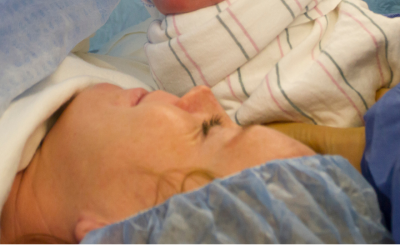
Understanding and Improving Ethnic Disparities in Hypertensive Disorders of Pregnancy
Hypertensive disorders of pregnancy (HDP) can affect different groups of women in different ways, and even though we know this happening, we don't fully understand why. There are many factors, like biology, the environment, culture, and access to healthcare, that could play a role. This article discusses what we currently know about these differences and suggests ways to improve both research and medical care to help women from minority backgrounds have better health during pregnancy.
In this review article, researchers looked through the PubMed and Cochrane databases from January 2020 to December 2024. They searched for different types of studies, like meta-analyses, systematic reviews, narrative reviews, and individual patient data analyses that focused on how factors like ethnicity, race, and racism relate to high blood pressure during pregnancy. To find even more helpful information, they also used a method called snowballing which reviews studies cited within the studies they found. They made sure to follow the latest guidelines from important international organizations about how to report race and ethnicity in medical research.
The authors discuss the disparities of the prevalence of HDP in women of different ethnicities. First, they address the concept of ethnicity, as it is now recognized that what we refer to as "race" or "ethnicity" is primarily a social construct. This is clear when one considers that one race/ethnicity (Black) is assigned based on skin color, another (Hispanic) by primary language, and a third (Asian) by a broad, multicultural geographic location. Biological differences alone cannot explain disparities without considering the influence of structural racism and chronic stress on these pathways. While the fundamental drivers of ethnic disparities in HDP remain to be fully understood, multiple studies show higher rates of HDPs among Black women in the US compared to other ethnic and racial groups.
The authors share potential causes of these differences which include:
- Social and environmental determinants of health: global geographic location, socio-economic status (SES), education level, employment and housing stability, food quality and availability, and environmental pollution. However, studies have shown that higher SES and education does not alter the discrepancies between US Black and White women. Future studies could look further into food insecurity and the impact of diet on HDP.
- Preexisting chronic diseases: chronic hypertension, obesity, diabetes, lupus and renal disease. Once again, however, differences still exist after accounting for these risk factors.
- Disparities in epidemiology: the paper notes that risks of HDP are very high in Filipino women, but low in East Asian women - yet both are usually classified as "Asian." There is a higher risk among South Asians and Pacific Islanders, especially women of Filipino and Samoan backgrounds. Broad ethnic categories often used in medical research, like 'Asian' or 'Black,' can hide important differences between groups of people from different places or cultures.
- Racism: leading theories suggest that increased stress due to navigating racist systems can lead to increases in inflammatory processes involved in cardiovascular disease.
- Quality of and access to prenatal care including previous poor healthcare experiences by Black women leading to distrust of the healthcare system.
- Biological and molecular mechanisms that differ among populations such as higher baseline levels of angiogenic factors (PlGF and s-Flt) involved in the etiology of preeclampsia in Black women.
- Genomoics: There is growing interest in determining if preeclampsia is inherited. Changes in a gene called APOL1 might increase the risk of preeclampsia in women of West African descent.
Researchers believe that how the APOL1 gene is expressed in the placenta might be linked to causing preeclampsia, and this connection could be affected by the gene types of both the mother and the baby. Some small studies done in the USA and South Africa have suggested that there may be a link between the genetic changes in both the mother and the baby and the chances of getting preeclampsia. More studies are needed to validate these findings.
More research is needed to understand the causes of these differences before they can be effectively addressed. Studies have shown that Black women are prescribed or take prophylactic aspirin at lower rates and often experience less consistent blood pressure control (less than 135/85) compared to White women. These differences may reflect inequities in healthcare access, trust, communication, and systemic bias within medical settings. Innovative strategies are needed to ensure that all women are equitably offered and informed in using recommended treatments, such as aspirin prophylaxis and self-measured blood pressure management.
Take home: Despite difficulties with the concept of ethnicity, worldwide, Black women suffer HDP more often and have worse outcomes than White women. South Asian, Pacific Islander, and American Indian women also have a higher risk of preeclampsia than White women. The reasons for this are unclear, but involve complex interactions among biological, behavioral, environmental, socio-cultural and healthcare system factors that need more research. Short term goals, such as aspirin prophylaxis for women at high risk of HDP and adequate blood pressure control, can be implemented now.
Healthcare systems should focus on helping women from minority backgrounds manage their blood pressure during pregnancy and after giving birth. It's important that women who have experienced these challenges are involved in creating and planning research and programs to help reduce disparities in care. Preeclampsia research studies need to include a mix of different ethnic groups in their studies, so that new treatments can help all women. Involving diverse women with lived experiences in the research process is key to making sure the solutions work for everyone.
The Preeclampsia Foundation’s Racial Disparities Task Force action plan to tackle ethnic disparities in HDP, published in 2024, was mentioned in this study. It includes recommendations across research, healthcare practices and community domains.
Citation: Conti-Ramsden, F, de Marvao, A, and Chappell, LC. Reproduction. 2025;169:e250049. (https://doi.org/10.1530/REP-25-0049).
About Research Roundup
Each quarter, our team of science writers reviews the most current research studies related to hypertensive disorders of pregnancy and summarizes those studies of greatest interest and potential impact to our community, including research studies related to risk assessment, diagnosis, prevention, and treatment. Special thanks to our volunteer research team including Dr. Sig-Linda Jacobson, Dr. Jennifer Mitchell, Dr. Julie Reynolds, Amanda Yang, and Simren Gupta who make Research Roundup possible, and to our Patient Advisory Council, who reviews these materials from the patient perspective.
Related Articles

Your story is needed to improve outcomes for moms like you. Add your voice to critical preeclampsia research to ensure that every story is heard.

Frequently asked questions about the Preeclampsia Registry, a patient-driven registry and biobank.

The Preeclampsia Foundation offers research funding, study recruitment, and other patient engagement services to researchers.

We provide research grant funding to advance progress towards detection, prevention, or treatment of preeclampsia, HELLP syndrome, and other hypertensive disorders of pregnancy.

How does preeclampsia affect health after pregnancy? Preeclampsia doesn’t always end with delivery. It is now recognized as an early warning sign for future cardiovascular disease. Women who h...

Recent findings in preeclampsia research have shown that preeclampsia likely has at least two variants – an early onset and a late onset variant. Early onset is typically defined as before 34 we...

Preeclampsia is a pregnancy complication marked by new-onset high blood pressure and signs of stress on organs such as the kidneys, liver, and brain. While much attention is often given to preterm dis...

Preeclampsia is a serious problem that can happen during pregnancy. It often affects the brain and can cause headaches, vision problems, strong reflexes, and seizures (called eclampsia). In this study...

Pregnancy offers a unique window into a woman’s future heart and cardiovascular health. Conditions such as hypertensive disorders of pregnancy (HDP) which include gestational hypertension, preec...



